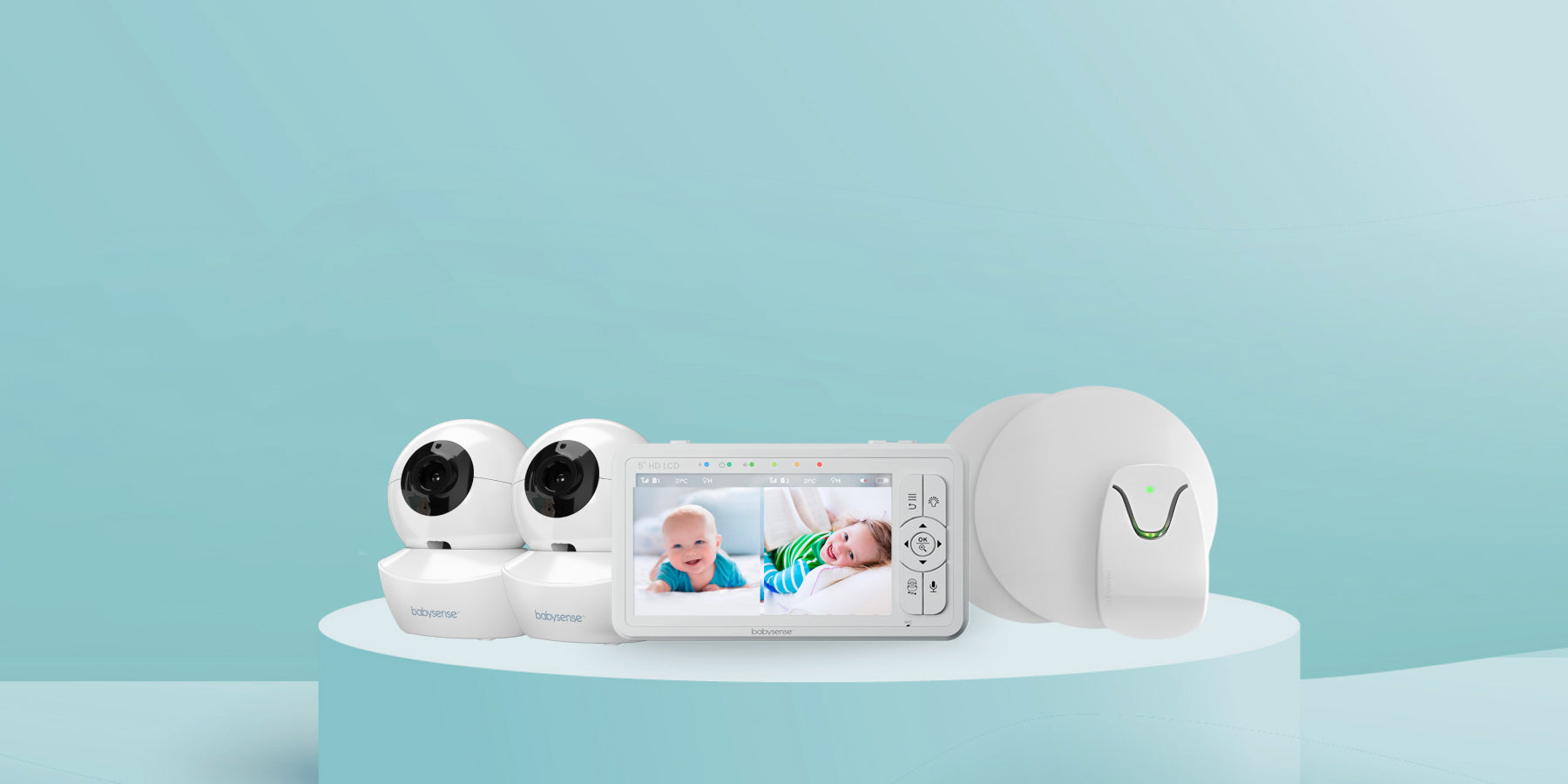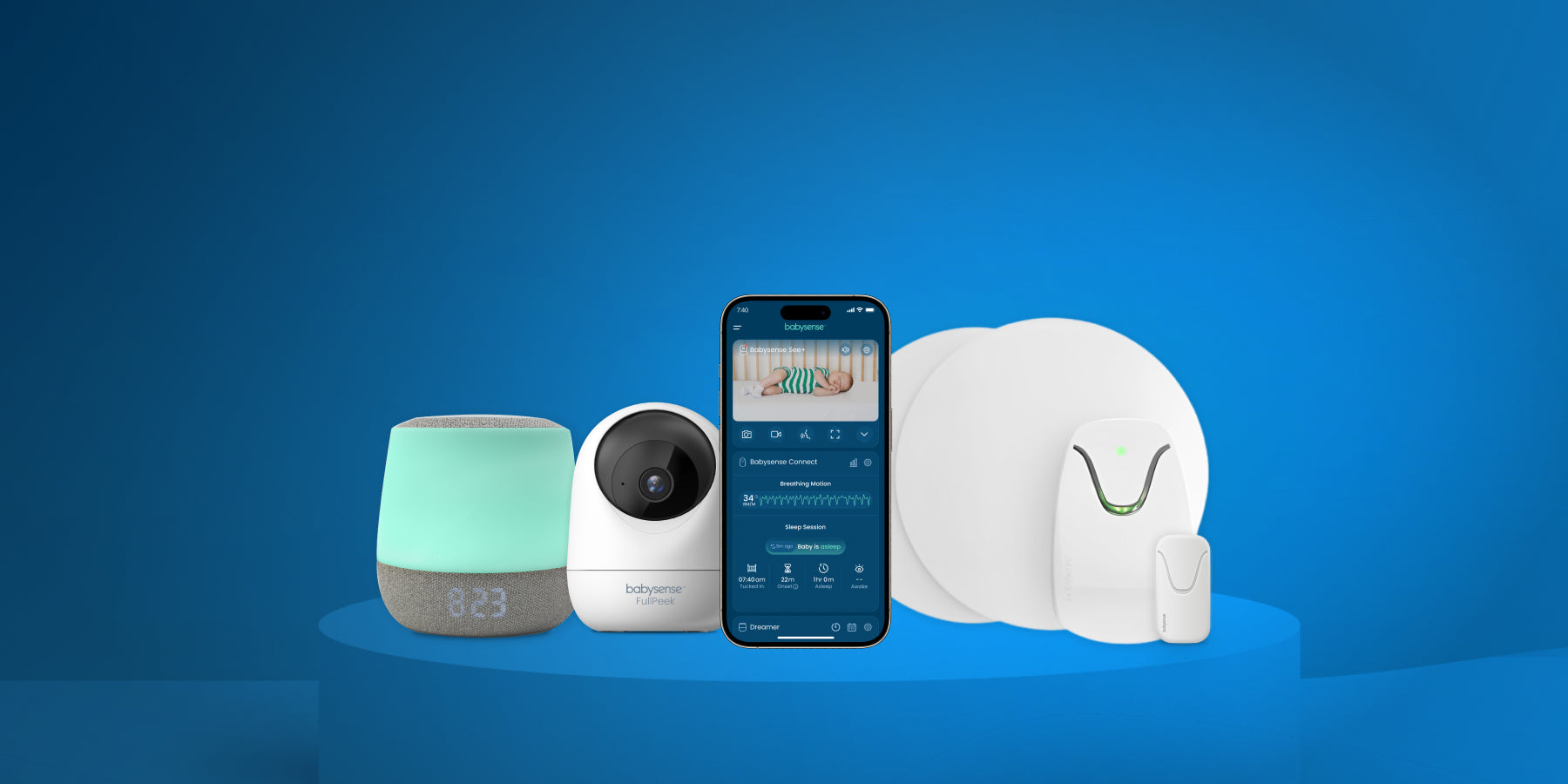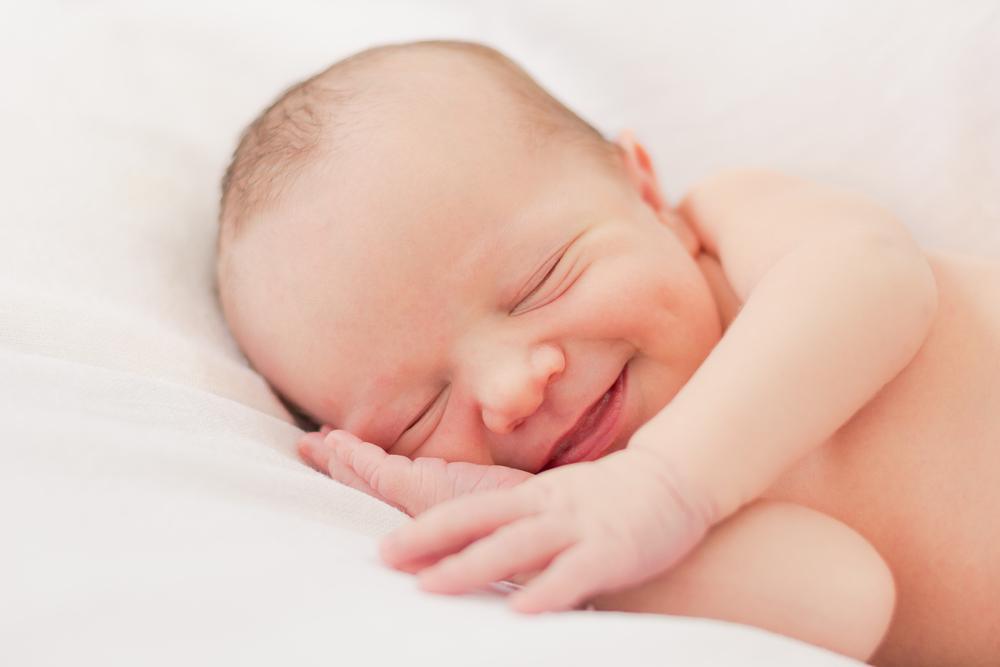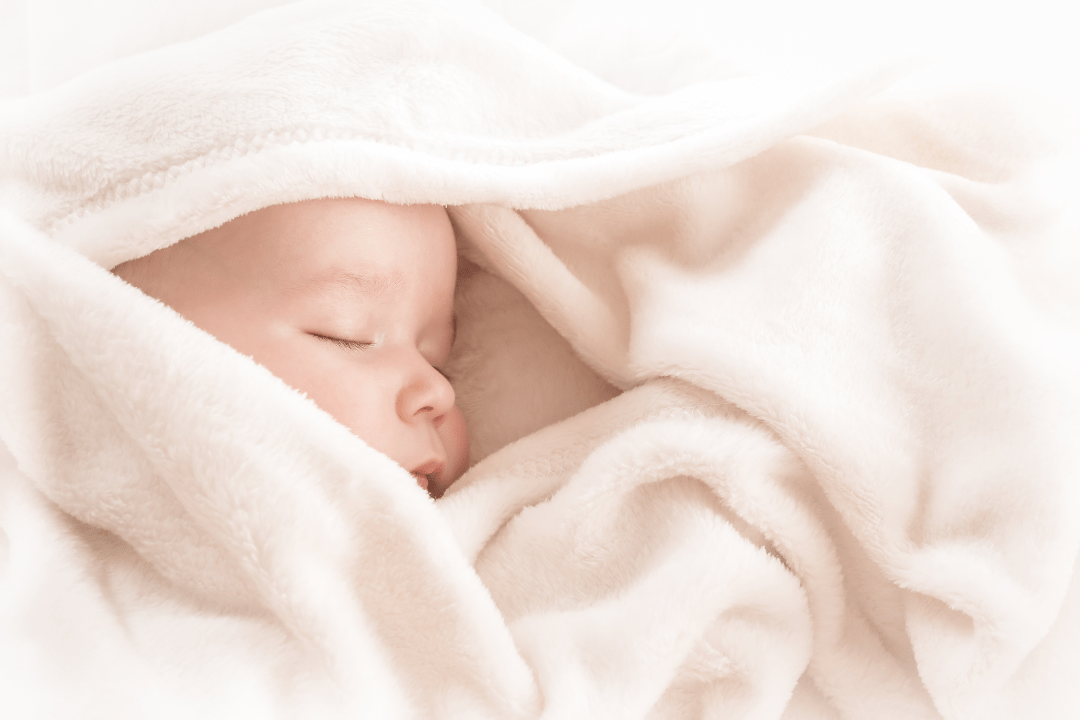As with any crossroads where new parents often find themselves, the opinions, speculation, and moralizing you might find online about night lights will range drastically.
Some experts and parents will insist that night lights are necessary for soothing your child’s fear of the dark or facilitating nighttime feedings and diaper changes. Others point out the well-documented relationship between light exposure and melatonin production in the brain.
The bottom line is that sleep hygiene is an incredibly important determinant of health and disease. Setting in motion good habits early on will make a healthy lifestyle much easier to maintain. It’s enough to make anybody ask themselves: “should my baby be sleeping with a night light?”
Does My Baby Need a Night Light?
The idea of a night light in the nursery (such as those found on our video baby monitors) is appealing to anyone who’s had to fumble around for something in the dark to change a diaper or soothe a distressed child without being able to see.
Sleepless nights are perhaps the most relatable experience of young parenthood and the night light does away with this very real, albeit minor, obstacle during those encounters.
It doesn’t have to be a battle! When it comes to a good night’s sleep, the parent’s interests align with the baby’s — the sooner you’re both back in bed, the better. This is why a night light can be more than just a convenience. If it’s helping you care for your baby more quickly, it might be the ace-in-the-hole that makes your baby’s sleep regimen more robust, not less.
Can Night Lights Affect Melatonin?
Several sources cite the effect of artificial light on your baby’s melatonin levels.
A 2018 pediatric study has recently confirmed the long-held suspicion that people in early childhood, like their peers in other age groups, exhibit a “melatonin suppression” response to artificial light stimulus. This occurs when exposure to artificial light causes a drop-off in the measurable amount of melatonin in a person’s saliva.
This would seem to be consistent with a few other findings and pieces of general wisdom: melatonin is produced as part of the circadian rhythm, or “biological clock” of all mammals.
It’s associated with sleep, increasing gradually as bedtime approaches, and it’s often made available as an over-the-counter supplement to assist adults in falling asleep. As far as many are concerned, melatonin is the “sleep chemical.”
Exposure to light is generally understood to have the effect of reducing the experience of drowsiness; some behavioral studies have even shown that people are more alert and less drowsy after sustained exposure to bright light.
One might conclude that melatonin reduction brought on by light exposure could be making babies less drowsy and less likely to sleep through the night.
Looking Beyond the Research
Don’t be fooled by the impressive medical research on melatonin levels — the decision to use a night light for your baby is still a personal one, and there is no formal playbook for raising children in light of these findings.
This is because the relationship between light exposure and melatonin levels makes up an incomplete connection between the much more complicated, much less understood relationship between light exposure and sleep hygiene.
For a long time, melatonin has seemed like the perfect index for measuring how drowsy a patient is, or how their drowsiness has changed in response to their environment.
But it’s becoming increasingly difficult for neuroscientists to ignore the vast complexity of the brain and the neurological systems in place that govern long-term patterns of behavior.
The systems involved in regulating sleep and maintaining the circadian rhythm have been no exception. While melatonin does play an important role in regulating sleep-related behavior, different regulatory mechanisms in the brain can give the chemical different effects, some of which seem to have nothing to do with sleep behavior.
This is best understood in light of a study out of the Netherlands by neurologist Melanie Rüger and colleagues. They reviewed three previous studies on the relationship between light exposure and melatonin, and the relationship between light exposure and drowsiness.
Rüger and her team found that in all three studies, the melatonin suppression response was unrelated to the reduction in drowsiness. Both phenomena took place on average, but they were unpredictable and statistically not related to one another.
There definitely are known, specific neurological circuits dedicated to regulating sleepiness, and these systems are known to respond to detectable changes in light exposure that take place.
Melatonin is indeed a key part of how these systems function under normal circumstances. But the brain is incredibly complex, and contains countless unexplained redundancies and dormant possibilities for adapting to change.
Increasingly, melatonin is being revealed to be a very small part of a larger network of influence and feedback. The growing consensus so far, then, has been that changes in sleep behavior are brought about by systematic changes to the brain, not just fluctuations in the amount of one chemical signal.
This is important because the experimental playbook of measuring melatonin as a gauge for drowsiness has led to a skew in the types of questions that can be answered by the available research.
Drowsiness as an experience is much more difficult than melatonin to quantify. As a result, study after study could get published about changes in melatonin levels without offering any new evidence about how these changes affect drowsiness.
So, What’s the Verdict?
Like most sleep issues, there’s a lot of research to suggest that night lights might not be the best choice, but the question remains, should your baby sleep with a night light?
Light exposure does reduce drowsiness and sleep quality, and it also reduces melatonin. But chances are low that it reduces drowsiness specifically as a result of it reducing melatonin, which means either one of the two responses could be caused by a night light without the other response taking place.
Melatonin levels are difficult to track— if there’s a problem in your child’s health, it usually isn’t going to be discovered through a melatonin test.
Plus, the night light problem is one that has a very clear barometer: a sleepless child. Melatonin levels probably aren’t worth worrying about as much as whether or not your child is giving you specific behavioral cues about their sleep hygiene.
Melatonin has long been an important fixture in the explanations offered by wellness experts, pediatricians, and general practitioners for why their suggestions contain good ideas.
But the fact remains that much is still unknown about melatonin’s role in the brain, and even less is known about the brain as a whole. Because of this, it’s easy to get the impression that melatonin is the beginning and end to any intervention on your baby’s sleep hygiene.
It’s Your Ultimate Decision
Realistically, the decision to use a night light is your own and medical research has no definitive answer on whether your baby should sleep with a night light.
If it’s making nighttime encounters go by more quickly, by all means, go ahead and use one! But if a night light seems to be keeping your child awake, it would probably be prudent to speak to a pediatrician with more personal context before continuing to use it.





